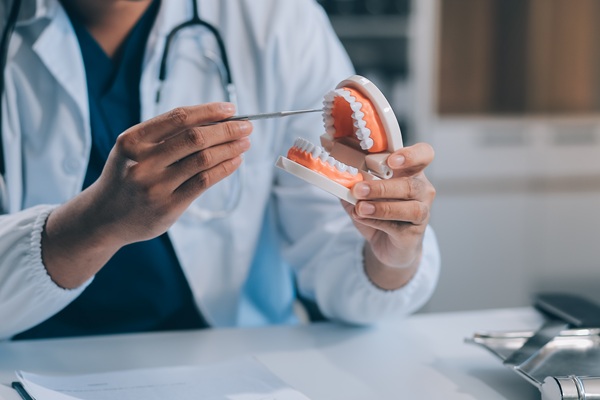General Dentist vs. Orthodontist: Who should you visit?

A smile is often one of the first features that people notice, so general dentists and orthodontists work hard to improve people’s smiles so that they can be beautiful and healthy. However, there is a distinct difference in both dental professions:
- General dentists focus on providing overall care, restoring smiles, and making them look more beautiful.
- On the other hand, orthodontists specialize in diagnosing and correcting the teeth and jaws to be aligned in the ideal position.
While dentistry concentration is a primary distinction between dentists and orthodontists, it’s not the variance. In this blog, we describe how general dentists and orthodontists differ in education, training, and services typically provided.
Education and Training
General Dentist
To become a licensed dentist in the United States, dentists must complete and pass:
- An undergraduate degree
- Professional dental school
- Residency and hands-on experience
- State licensing exams
Orthodontist
In addition to the education and training that a general dentist must complete, orthodontists become specialists after:
- Completing a two-to-three-year orthodontic residency program
- Receiving board certification in orthodontics
Services Provided
General Dentist
General dentists are most people’s go-to oral health professionals for managing and developing a healthy smile at every stage of life. The ADA recommends that people visit their dentist at least every six months for dental cleanings and exams, but people also visit the general dentist for:
- Preventative treatments (gum disease and tooth decay)
- Dental x-rays
- Fillings and root canals
- Tooth extractions
- Cosmetic dentistry (including tooth whitening, veneers, and more)
- Emergency dental visits
Today, many general dentists offer clear aligner therapy to keep up with the growing demand and desire for straight teeth. By providing clear aligner treatment (such as Invisalign® and Invisalign Teen®), the general dentist’s clinic becomes a one-stop-shop for dentistry and orthodontics.
Orthodontist
What does an orthodontist do daily? Orthodontists prescribe treatments to properly align the teeth and jaws with mending a variety of health problems, including:
- Aesthetically unappealing teeth
- TMJ problems and lockjaw
- Sleep apnea
- Chronic headaches
- Bone, teeth, and gum damage
- Inadequate chewing and related digestive system issues
While many general dentists can prescribe clear aligner therapy for patients with mild to moderate malocclusions (misaligned bites), they may refer patients to an orthodontist for two reasons:
- Too young: Clear aligners are ideal for teens and adults. If young patients need to straighten their teeth with braces, most dentists will refer them to an orthodontist.
- Overly complicated orthodontic cases: Although clear aligner technology is constantly evolving, it’s limited. If a patient’s malocclusion is too complex for clear aligner therapy, dentists may also recommend them to an orthodontist for traditional braces.
Schedule Your Next Appointment with a General Dentist
Whether you need a dental cleaning or want to improve appearances, visiting a general dentist is a solid first step to improving the health or appearance of your smile. If needed, your general dentist can refer you to an orthodontist for more extensive orthodontic treatment. Dentists and orthodontists often work closely together so that patients can have a healthy, straight smile.
At Advanced Family Dentistry, Dr. Payam K. Asadi is a general dentist in Tucson, AZ. He offers a wide array of dental and orthodontic services:
- Invisalign
- Routine dental care
- Cosmetic dentistry
- Prosthetic dental services
- Dental implant services
- Dental emergencies
Book your next dental or Invisalign appointment with us by calling (520) 353-3002.


